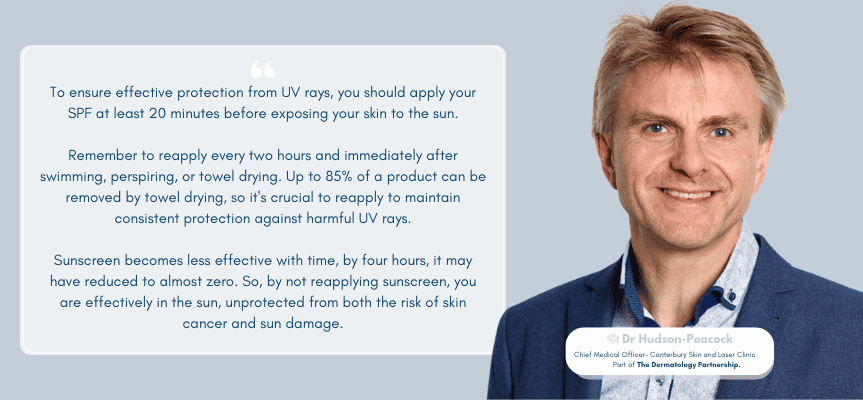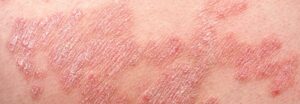Unleashing the Potential of Sunscreen
What is SPF?
The Significance of SPF in Everyday Skincare
You may associate SPF with sunny beach outings, but it’s a daily requisite. UV rays are omnipresent, unaffected by the season. 80% of UV rays can permeate through clouds, making SPF a non-negotiable even on cloudy days.
Excessive UV ray exposure significantly contributes to melanoma, a serious variety of skin cancer. Apart from increasing melanoma risk, UV rays also hasten the ageing process. They disrupt the skin’s collagen, causing abnormal thickening, which results in wrinkles and fine lines. This phenomenon, known as photoaging, can manifest prematurely aged appearance. Once sun-induced damage sets in, there’s no validated method of reversing it.
Incorporating SPF into your everyday skincare routine offers a robust defense against these risks. It serves as a barrier to sunburn while also hindering long-term damage, safeguarding your skin’s well-being and youth.
Selecting the Right SPF for Your Skin Type
For Oily Skin
For Dry Skin
For Sensitive Skin
For Combination Skin
Dispelling Common Misconceptions About SPF
Myth 1 - SPF is Only Required in Summer
Myth 2 - A Higher SPF Ensures Prolonged Protection
Myth 3 - Darker Skin Tones Don't Need SPF
Myth 4 - SPF Isn't Needed Indoors
Myth 5 - Makeup with SPF is Enough
Incorporating SPF Into Your Everyday Routine: Helpful Hints
Make It the Last Step
Set a Reminder
Don't Neglect Lip Protection
Layer on SPF
The Importance of SPF in Preventing Sun-Induced Skin Conditions
Conditions Triggered by Sun Exposure:
- Photoaging: Continued exposure to UVA rays accelerates the skin’s ageing process, resulting in wrinkles, fine lines and hyperpigmentation.
- Age Spots and Sun Damage: Also referred to as liver spots, these are flat, brown or black spots that materialise on the skin due to chronic sun exposure.
- Freckles and Solar Lentigos: Small, flat, brown spots on the skin that intensify with sun exposure.
- Actinic Keratosis: This condition is characterised by rough, scaly patches on the skin due to prolonged sun exposure and can potentially progress into skin cancer.
- Basal Cell Carcinoma: A form of skin cancer that typically presents as a translucent bump on the skin and is primarily induced by UV exposure.
- Squamous Cell Carcinoma: Another variant of skin cancer that appears as red, scaly lesions and is associated with prolonged UVB exposure.
- Malignant Melanoma: The deadliest form of skin cancer, which can develop anywhere on your body and is closely linked with UV exposure.
SPF primarily measures protection against UVB rays. However, many sunscreens now offer broad-spectrum protection, defending against both UVA and UVB rays. This dual protection is crucial for preserving overall skin health.

Conclusion
Integrating SPF into your daily regimen is a transformative step in maintaining robust, youthful skin. By grasping the significance of sun protection and selecting the right products, you can make SPF a regular part of your skincare routine.
Remember that today’s skin protection ensures healthier, beautiful skin tomorrow. SPF is non-negotiable regardless of whether you’re just starting your skincare journey or already a skin enthusiast.
Kickstart your safe-sun journey confidently and don’t hesitate to consult skincare professionals for personalised guidance. Dermatologists can assist you in choosing the appropriate SPF and addressing any concerns regarding sun-induced ailments. Your skin will be grateful!


